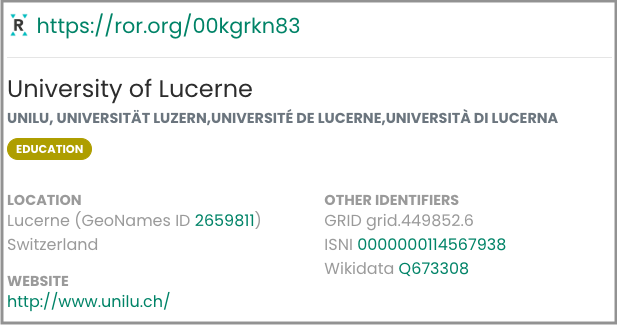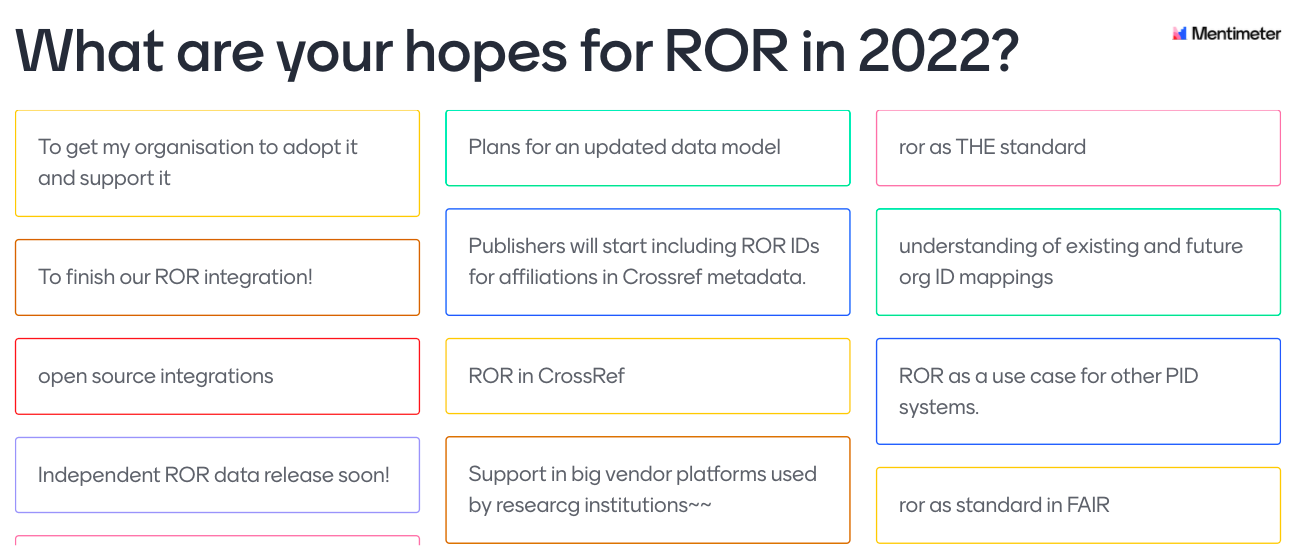Since its launch in 2019, ROR has been charting a unique path toward sustainability. In this blog post, we want to provide an update for the community on where this path is taking us.
Research Organization Registry (ROR)

The ROR registry includes unique IDs and associated metadata records for 100,000+ research organizations. Each one of these organizations has at least one name.
We are thrilled to introduce a new member of the ROR pride: Amanda French has joined ROR as our full-time Technical Community Manager.
ROR is excited to welcome three new Steering Group members: Lautaro Matas, Kathleen Shearer, and Chris Shillum. Inaugurated in late 2019, the ROR Steering Group is an advisory body that supports the registry’s strategic planning and decision-making activities.
The ROR registry has grown! We are excited to announce a new ROR registry release. With this update, the registry has grown to 102,559 records.
ROR begins a new round of community fundraising Since ROR launched in 2019, we have been charting a path to sustainability that leverages our broad community network and diversifies our funding sources.
ROR is hiring! We are looking for a full-time Technical Community Manager to expand the adoption and integration of ROR throughout the global scholarly communications ecosystem.

The end of January 2022 marked the third anniversary of ROR’s launch at PIDapalooza 2019 in Dublin. Continuing with a tradition from the prior two years (2020 in Lisbon, and 2021 on Zoom), we marked the occasion with a community celebration to reflect on ROR’s progress and discuss the work that lies ahead.
ROR is looking for a Senior Software Engineer to join as our Technical Lead, based at DataCite. You will be leading, developing, and architecting ROR services and infrastructure.
Add Research Institution Identifiers with ROR!
ROR is looking for a data manager to lead metadata curation activities for the registry, including coordinating registry updates and maintenance, working with ROR’s community curation advisors, and developing and implement long-term curation policies and practices.